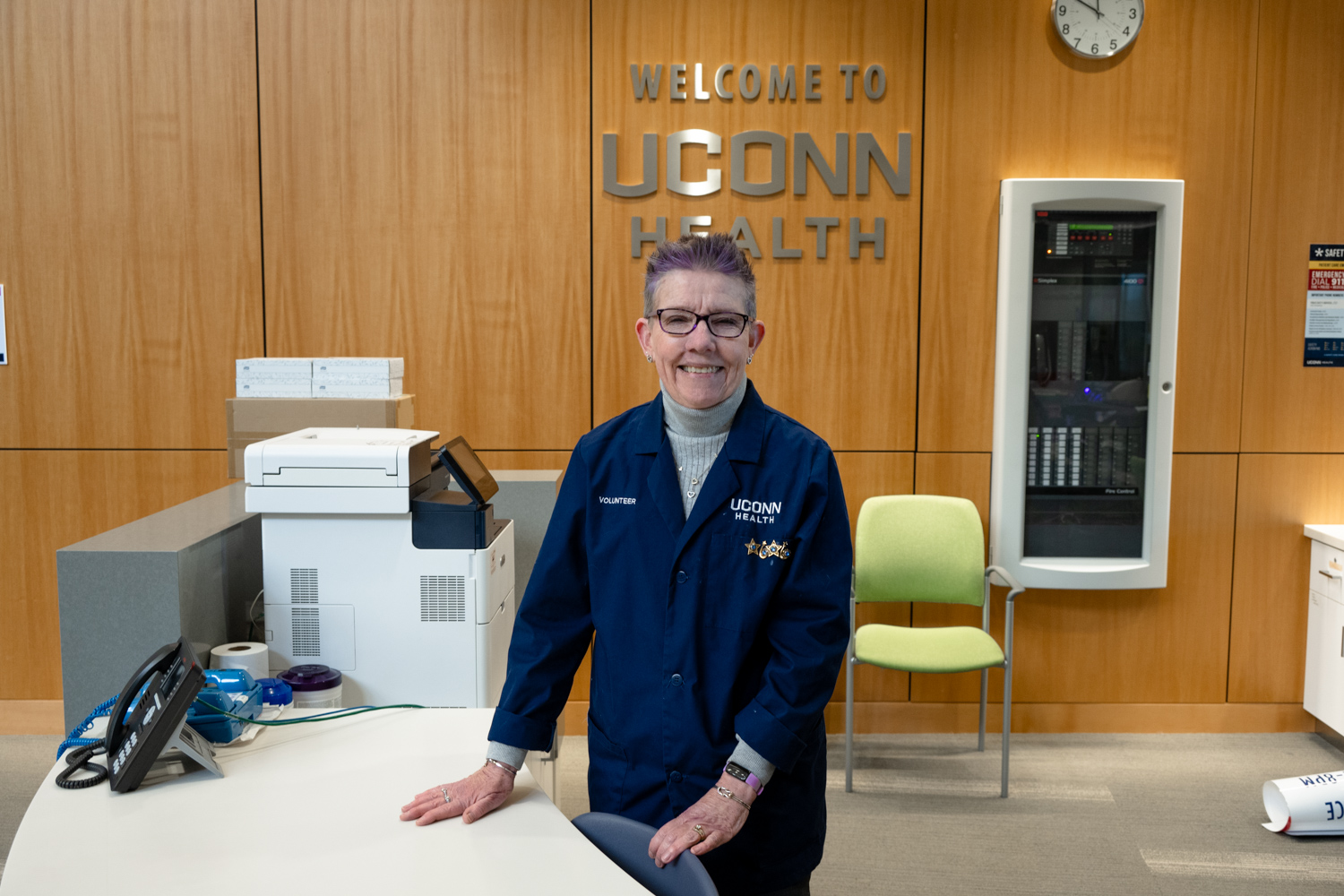In January, as one of the first major initiatives of the Academic Vision, the Rudd Center for Food Policy and Obesity will move to UConn from Yale University. The move will allow Rudd faculty to expand their work and build new collaborations with UConn experts on nutrition, public policy, psychology, agriculture, economics, and obesity.
Every Wednesday throughout this semester, read about the cutting-edge work spearheaded by UConn and Rudd investigators. Read more articles.
Obesity prevention efforts increasingly are targeting young children, but few researchers are bringing interventions to childcare settings.

Professor Kim Gans, who joined UConn’s Department of Human Development and Family Studies this semester, is one of only two researchers nationwide bringing such interventions to home-based childcare, and the only researcher providing such interventions in both English and Spanish.
Gans, one of two new faculty experts in obesity recruited from Brown University to UConn by its Center for Health, Intervention, and Prevention (CHIP), is a nutritionist known for bringing nutrition, physical activity, and weight loss interventions to the communities that need them most.
She has partnered with a variety of organizations, including YMCAs, housing projects, churches, schools, and work sites. By providing interventions for children, families, adults, and the elderly, Gans’ work spans the lifespan. Much of her research also has focused on low-income and ethnically diverse populations.
Her work helping home-based childcare settings in Rhode Island to improve their nutrition and physical activity environments is funded through a new National Heart, Lung, and Blood Institute grant in conjunction with Patricia Risica, an assistant professor of epidemiology in Brown University’s School of Medicine. The project will begin this fall.
“You have to catch kids when they are younger and still establishing their diet and their physical activity and television viewing habits,” says Gans, who also possesses a background in behavioral and social sciences. “If kids start out overweight, it is very difficult to reverse later in life.”
Half of the 132 home-based childcare sites in the study will receive the nutrition and physical activity intervention, and half will be in the control arm of the study and receive a school readiness program. Gans will conduct assessments of the home environments and learn how each provider structures the children’s day, and then provide customized intervention content, including print materials and video clips. She also will train peer counselors and community health workers to deliver the interventions, and will host monthly meetings to bring home childcare providers together. She expects that at least 40 percent of the providers will be Hispanic.
“Low-income and ethnic minority populations are disproportionately affected by obesity and related chronic diseases, so it’s very important to create culturally appropriate interventions that are effective for these populations,” she says.
All of the home childcare providers receiving the intervention will receive training in the same basic topics and receive the same dose of information, but some details may vary based on the individual home childcare site’s needs, she says. For instance, some may work on eliminating juice first, while others work on adding more active play time.
“We’ll tailor some of the nuances to better suit each daycare provider’s needs,” Gans says. “They will not receive a one-size-fits-all intervention.”
Another active research project Gans is bringing to UConn is called Live Well: Viva Bien. It involves bringing fresh fruit and vegetable markets into Section 8 public housing sites for low-income, elderly, and disabled individuals. The study is funded by the National Cancer Institute.
For the study, which brings the markets to eight sites in Rhode Island, Gans works directly with distributors to offer produce at prices 15 to 20 percent lower than found in grocery stores. Gans says the intervention seeks to reduce often cited barriers to healthy eating in public housing, such as the high cost of produce and food deserts – or lack of accessible grocery stores. The study also provides educational programming including newsletters, DVDs, taste-testing and recipes, and campaigns. The other seven sites in the study are a comparison group and receive physical activity and stress programming.
Preliminary results from Live Well: Viva Bien indicate that the nutrition intervention has been particularly successful with disabled and elderly participants, an important finding given the aging population, Gans says.
“Fruit and vegetable consumption is associated with reduced risk of mortality among older adults and reduced risk of health outcomes across the lifespan, including the prevention and management of chronic illnesses, so it’s very important for older adults to eat enough fruits and vegetables,” Gans says. “It’s never too late to improve your eating habits.”
Gans has another National Cancer Institute study, Good to Go, at 21 worksites in Rhode Island and Massachusetts that also involves bringing discount produce markets to work settings. In this study, seven worksites receive markets only, seven worksites receive markets plus educational programming, and seven worksites are comparison sites that receive physical activity and stress programs. Gans has done several studies at worksites, where an often-cited barrier to healthier habits is lack of time, and worksite wellness is an area in which she would like to continue her research.
Another emerging area of interest to Gans – and a possible area for collaboration at CHIP and UConn – would be using technology, particularly mobile technology, for broader dissemination of effective interventions.
“Dr. Gans is an accomplished researcher. Her work addresses some of the most important questions in the field of obesity prevention and treatment – how to translate efficacious interventions into cost-effective programs, and have them reach the communities in most need,” says associate professor of clinical psychology and CHIP Principal Investigator Amy Gorin, who chairs CHIP’s Obesity Research Interest Group.
CHIP, which is dedicated to the study of health behavior and health behavior change, has created a thriving obesity research interest group boasting more than 130 members from 20 UConn departments across multiple campuses.
Gans says UConn’s “vibrant group of obesity researchers” and CHIP’s highly collaborative atmosphere were key reasons for her move to UConn.



